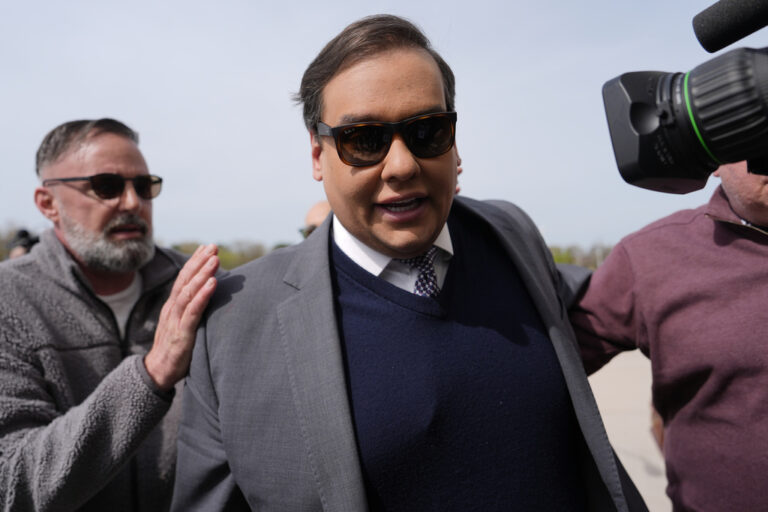Israel’s prime minister has been a vocal critic of Iran over the years, accusing the Islamic Republic of sinister intentions at every opportunity. But the outspoken Benjamin Netanyahu has remained uncharacteristically quiet throughout the current crisis between the U.S. and Iran.
While Israel has welcomed Washington’s pressure on Tehran, the crisis has nonetheless put Netanyahu in a delicate position, not wanting to be seen as pushing the Americans into a military confrontation and wary of being drawn into fighting with Iran’s powerful proxy, the Lebanese militant group Hezbollah.
“In recent developments, Israel has taken the backseat. There’s one reason for this: it’s not in Israel’s interest to take the lead,” said Yoel Guzansky, a senior researcher at the Institute for National Security Studies, a Tel Aviv think tank, and former Iran analyst in the prime minister’s office.
It’s a new look for Netanyahu, who has made Iran his top priority during his decade-long tenure.
Netanyahu has repeatedly accused Iran of seeking to develop nuclear weapons — a charge it denies — and criticized its support for anti-Israel militants, development of long-range missiles and frequent calls for Israel’s destruction.
He has compared the Islamic Republic to Nazi Germany, and famously gave a speech to the U.S. Congress against the U.S.-led international nuclear deal with Iran in 2015. The speech infuriated then-President Barack Obama, and remains a sore spot with U.S. Democrats.
Since President Donald Trump was elected, things have shifted in Netanyahu’s favor. The Israeli leader strongly encouraged Trump’s decision last year to withdraw from the nuclear deal. He also has welcomed the renewal and tightening of U.S. sanctions on Iran.
The U.S. pullout from the nuclear deal, which gave Iran relief from painful economic sanctions in exchange for limits on its nuclear activities, lies at the root of the current crisis.
Echoing Israel’s arguments, Trump has said the deal failed to sufficiently curb Iran’s ability to develop a nuclear-weapons capability and did not address Tehran’s support for militant groups and its missile program. The renewed sanctions, meanwhile, have sent Iran’s economy into freefall.
In recent weeks, tensions have soared as the U.S. beefed up its military presence in the Gulf in response to a still-unexplained threat from Iran.
The U.S. also has accused Iran of being behind a string of incidents, including alleged sabotage of oil tankers off the coast of the United Arab Emirates and a rocket that landed near the U.S. Embassy in Baghdad, while Yemen’s Iran-aligned Houthi rebels have launched a string of drone attacks targeting Saudi Arabia.
Iran in turn has announced it is quadrupling its production capacity of low-enriched uranium, making it likely the country will soon exceed stockpile limits set by the nuclear accord. Iran also gave Europe a July 7 deadline to set new terms for a nuclear deal or it will enrich uranium at higher levels, closer to weapons grade.
If Iran begins ramping up uranium enrichment, all eyes will turn to Israel, which in the past has issued veiled threats to strike and carried out similar assaults on Syrian and Iraqi nuclear facilities.
Earlier in this decade, Israeli officials strongly considered attacking Iranian nuclear installations, though doing so would be a difficult task. Iran, about 1,000 kilometers (600 miles) from Israel, has a sophisticated air defense system and has spread out its nuclear facilities, building some underground or in the side of a mountain.
All of this has made Netanyahu’s low profile especially noticeable. In a recent speech, he repeated his longstanding position that Israel will not allow Iran to acquire a nuclear weapon. Otherwise, he and other officials have said little, trying to portray the standoff as a U.S.-Iran dispute.
Israeli Cabinet minister Tzachi Hanegbi, who is close to Netanyahu, said earlier this month that he sees two potential outcomes of the crisis, both of which he described as good for Israel. The Iranians, he said, will meet U.S. demands, return to negotiations and reach a new and improved agreement, or there will be a conflict.
“I don’t really believe that the Iranians or the Americans are currently seeking a conflict,” Hangebi told the Army Radio station. If there is one, Iran stands no chance against a super power like America, he said.
Guzansky, the Tel Aviv researcher, said Israel has to be careful about being seen as encouraging the U.S. to attack Iran. In 2002, a year before the U.S. invasion of Iraq, Netanyahu, as a private citizen, testified to Congress that toppling Iraqi leader Saddam Hussein would be a “good choice” that would benefit the region.
“Israel cannot risk being seen as the one who led the U.S. and Iran to a confrontation, in the case of a loss of American lives. The price in U.S. public opinion and in world leaders’ opinions would be too high,” Guzansky said.
He said the fact that Israel has become a “very partisan” issue — with support much stronger among Republicans than Democrats — added to the risk.
For now, Israeli officials believe the risk of a direct confrontation with Iran remains unlikely. Instead, they believe the biggest immediate threat is the possibility of Iran unleashing its regional proxies along Israel’s borders — Hezbollah in Lebanon and Syria and Islamic Jihad in the Gaza Strip — as retaliation for a U.S. attack.
Even that scenario seems distant. Israeli officials say the situation on the ground has not changed fundamentally. Israel has closely monitored Hezbollah and its other enemies for years, and occasionally acts against them.
Israel has acknowledged carrying out hundreds of airstrikes against Iranian and Hezbollah positions in Syria in recent years. On Monday, for instance, the Israeli military said it struck an anti-aircraft position in Syria after it fired at an Israeli warplane.
“We monitor,” said an Israeli military official. “We’re not looking to escalate.” He spoke on condition of anonymity under army protocol.
But it may be difficult for Israel to keep its distance if fighting breaks out between the U.S. and Iran.
Yaakov Amidror, Netanyahu’s former national security adviser, said the biggest threat to Israel, by far, is Hezbollah, a powerful militant group that fought Israel to a stalemate during a 2006 war. Since then, Hezbollah has gained valuable battlefield experience fighting alongside government troops in Syria’s civil war and is believed to have amassed a vast arsenal of missiles aimed at Israel.
“We’d have to face 130,000 rockets and missiles. It would lead to a devastating war,” Amidror said. “Israel would be in the direct line of fire and the burden would fall on our shoulders directly.”
(AP)











